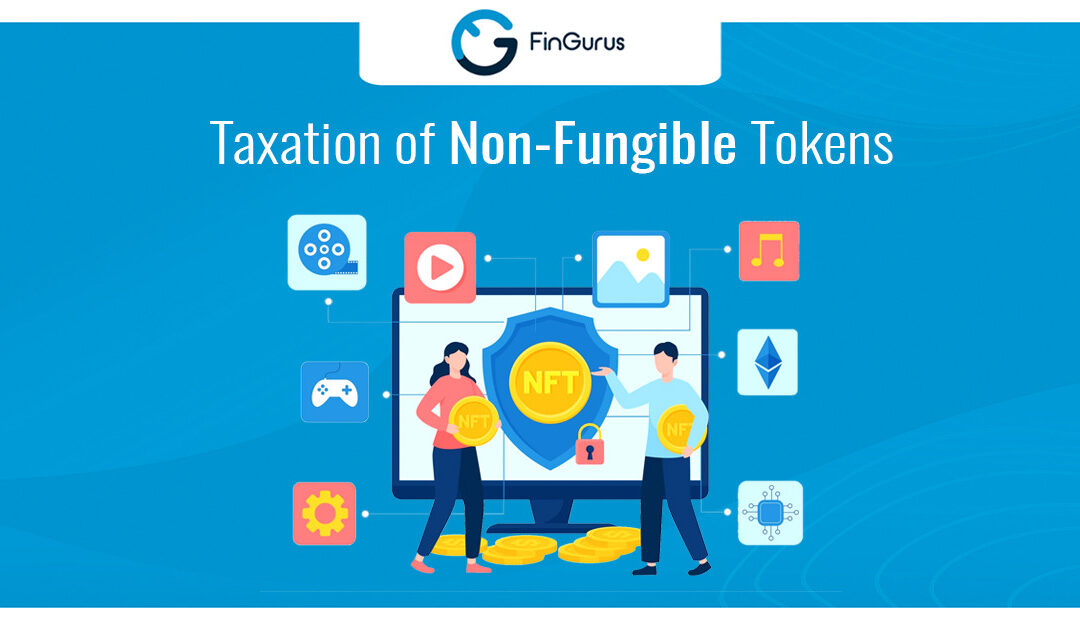NFTs or Non-Fungible Tokens are touted as the “next big” thing in the crypto industry. A reasonably exciting concept, NFTs have become a global sensation over a matter of time.
But first, what are NFTs?
Non-fungible tokens (NFTs) are digitally collectible assets designed to be created in limited quantities, maintaining their scarcity and authenticity. Often termed as digital assets, they can be game collectibles, photos, audio, videos, and other digital formats. Each NFT denotes uniqueness against another, presenting different values.
Given their uniqueness and scarcity, the market rose to interest in NFTs due to the recent upsurge in the value of cryptocurrency markets. Following the latest events, the NFT market seems to have been increasing.
Sounds interesting, right? Planning to buy yourself some NFTs too? Yes, we know the hype around it. But we have a reality check for you. Just because NFTs are the latest addition to the market doesn’t mean that they are not taxable.
Long gone are the days when cryptos and NFTs were assumed to be one of the most reliable investment forms due to their discrete nature.
Following the events of 2021, non-fungible tokens are also covered under the tax code.
How Taxation Works For The NFT
General Taxation-
As per the latest news, NFTs are considered to be “collectibles” under Section 408(m)(2) tax code. The total taxation imposed on NFTs is related to how buyers interact. There are two ways you can be involved with NFTs: you can create and sell NFTs in a marketplace or buy and sell NFTs as an investor.
Creators are subjected to self-employment and ordinary income taxes
Artists or the creators of the NFTs are the ones who generally receive a significant chunk of the sale price, excluding the fee charged by the platforms. Interestingly, creators need to pay some taxes for the gateway charges before they sell their creations.
For instance, the NFT platform for Indian buyers might introduce a 2% equalization levied over the NFT’s gross value and total income acquired from the marketplace. Further, if the artist is into trading or creating these pieces, they can also deduce the business expenses from the offsetting income.
NFT investors are subjected to capital gains
Like shares and bonds, NFTs also comprise individuals who put their money on them as a form of investment, following them for speculative purposes of these art pieces. Generally, most people fall into this category.
For investors in the NFT marketplace, taxes are kept similar to the rates involved in cryptocurrency trading. Since NFTs are generally purchased using cryptocurrencies like ether, investors and other buyers have to pay their charges in transaction fees. Further, buying NFTs using NFTs promotes a taxable event for the investors will be disposing of cryptocurrency in the process, treated as an asset as per IRS Notice 2014-21.
Taxes Revolving around NFTs
When held beyond a period of 12 months before selling them off, NFTs are imposed on long term capital gains, taxed at 0%, 15%, or 20% tax rates, while selling them within 12 months is imposed on short term gains, taxing them under ordinary tax rates. Additionally, both national and foreign sellers might face GST implications over their sales and purchase.
‘Income’ under the Information Technology Act’s Section 2(24) and Income-tax Act doesn’t include specific ‘currency’ or ‘money’ as sources of revenue. Even if the transactions include “monetary payments”, taxes are imposed on the transaction. As a result, the income generated from NFTs can be described as revenue from capital gains.
Further, as long as the artist holds 100% of the non-fungible token, it is determined to be a security measure and taxed as income under capital gains, under Section 54 of the Income Tax Act.
That’s A Windup!
Yes, that would sum up all the taxation and terms you need to know around NFTs. Having said that, what’s your take on investing in NFTs? Would you like to invest in the same? Let us know in the comments below.

